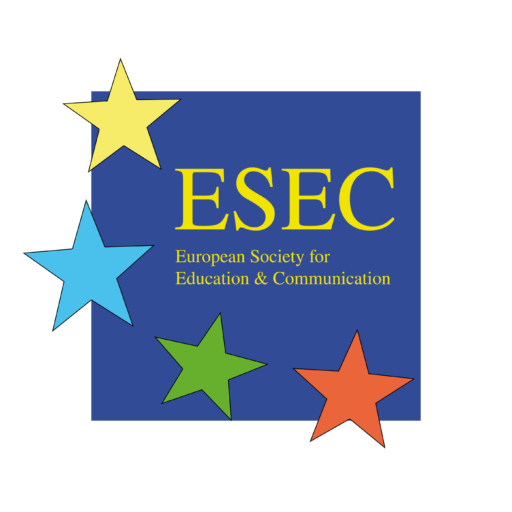Europäische Vereinigung für Bildung und Kommunikation
Verein nach österreichischem Recht / Association under Austrian law
ZVR: 791994414
The name used in context of international activities: European Society for Education and Communication with the abbreviation ESEC.
Board 2021-2024
Prof. Dr. Thomas A. Bauer (President)
Dr. Bernd H. Mikuszeit (Vice-President)
Dr. Marlies Bitter-Rijpkema (Vice-President)
Peter Csizmar, MSc. (Vice-President)
Christos Giannoulis (Vice-President)
General SECRETARIAT
Mag. Michael-Bernhard Zita (Secretary General)
secretary-general@esec.wien
News
- Expert Talk on Media Literacy and Societal CommunicationProf. Dr. Thomas Bauer, President of the European Society for Education and Communication and Professor Emeritus at the University of Vienna, will share valuable insights on Media Literacy and Societal Communication at the Department of Technology Communication Management – USTP CDO Campus.
- Istria Media Days 2024The Istria Media Days will take place from October 14th to 16th. You can explore the full agenda in the PDF down below:
- ISTRIA MEDIA DAYS 2024SOCIAL INCLUSION AND INTEGRATION – A CHALLENGE FOR MEDIA AND MEDIA PRACTICE. VARIOUS CURRENT ISSUES IN MEDIA ENVIRONMENT – AS FOR EXAMPLE DIVERSITY, MIGRATION, GENDER QUESTIONS, AND SOCIAL CONSTRUCTION OF REALITY – STRESSING COMPETENCE AND RESPONSIBILITY OF SOCIETAL COMMUNICATION. From 14 to 16 October 2024. 3 days online seminar. More…
- Welcome Back: Prof. Dr. Thomas A. Bauer Enriches the MSTCM Program Once AgainThe Department of Technology Communication Management is delighted to welcome back Prof. Dr. Thomas A. Bauer, our distinguished visiting professor for the Master of Science in Technology Communication Managament (MSTCM) Program. Since 2021, Dr. Bauer has been an integral part of our academic community, bringing invaluable insights to our students.…
- EU Projekt: Nachhaltigkeit in Bildungsmedien für die ErwachsenenbildungBildungsmedien im Wettbewerb zum Thema Nachhaltigkeit Am 11. Juni 2024 findet in Berlin ein internationaler Kongress statt, in dem im Rahmen eines EU-weiten Projektes der Nachhaltigkeits-Award für Bildungsmedien vergeben wird. Der folgende Text thematisiert die komplexen Zusammenhänge von Bildung und Nachhaltigkeit im Kontext von Medien- und Gesellschaftswandel. Die Veranstaltung dient…
- Think & Drink: Europa verstehen als Bürger*innenpflicht?In einer Zeit, in der die europäische Integration und Zusammenarbeit zunehmend an Bedeutung gewinnen, wollen wir gemeinsam ergründen, warum ein fundiertes Wissen über Europa und seine medialen Mechanismen nicht nur wünschenswert, sondern möglicherweise eine Pflicht für alle Bürgerinnen und Bürger sein sollte. Im Fokus stehen dabei die Diskrepanz zwischen nationaler…
Who we are
The European Society for Education and Communication (ESEC) is an international scientific association in the fields of education for communication, media, and society, acting primarily in the interest of cultural and educational support for the development of an integrated European society.
ESEC is a society of experts in educational science, media science, education and media practice.
The main objective of ESEC is to carry out European projects (research, educational work, exchange platforms, publications, awards) within the framework of international cooperation of experts (media and educational science and media and educational practice) for the realization of the understanding of a common European idea with different cultures, traditions, and values.
ESEC is particularly engaged in the field of educational media production and educational media use in classroom contexts, as well as social media education in both work and everyday contexts.
ESEC cooperates with experts (scholars and practitioners), organizations, and institutions in the field of media and communication studies and focuses its activities on media and communication education, media literacy, political and social literacy, and social media awareness.
ESEC is an association of scholars and academically interested or ambitious practitioners concerned with cultural, political and social quality.
ESEC welcomes members from European educational and media institutions but is also open to experts in academia and practice from societies outside Europe.
What we do
The association has participated for almost 15 years as a partner in various GRUNDTVIG, LEONARDO, and ERASMUS learning partnership projects for the processing, implementation, and dissemination of media-pedagogical knowledge.
Within the scope of these projects, ESEC has been largely involved in the formulation of the scientific-theoretical framework and contributed to its corresponding fundaments.
The association has been involved as a partner in various GRUNDTVIG, LEONARDO and ERASMUS learning partnership projects for the preparation, implementation and dissemination of media pedagogical knowledge for almost 15 years.
Within these projects, ESEC has been instrumental in the formulation of the scientific-theoretical framework and has contributed to the relevant foundations.
The competence of the association (ESEC) lies above all in the conceptual development and elaboration of media-cultural and educational-scientific foundations for the various projects in which ESEC is involved:
- Educational media databases for the didactic use of educational media in different technical systems for different educational levels and educational institutions (adult education, school education, vocational education, general political education, media education),
- Development of scientifically based quality assessment systems (quality standards, quality criteria) for/of educational media or media education programs,
- Award events for the professional quality of educational media within the framework of award competitions, in order to bring the educational market, media production as well as media reception increasingly closer to quality standards and quality criteria and to anchor awareness of this in the market,
- Conducting continuing education and training events in the field of media education / educational media use for various relevant target groups: Educational institutions, educational pedagogues, educational advisors, journalists, media documentalists.
- Publication of scientific bases for practical educational work: vocational education and European education (curricula, syllabi, educational programs),
- Cooperation and engagement in the field of alternative media work, especially in the context of migration management, integration programs, diversity management programs, etc.
Sign up for the ESEC newsletter
